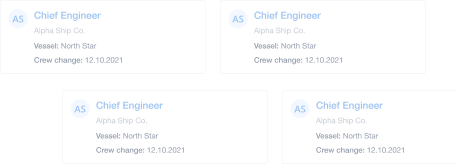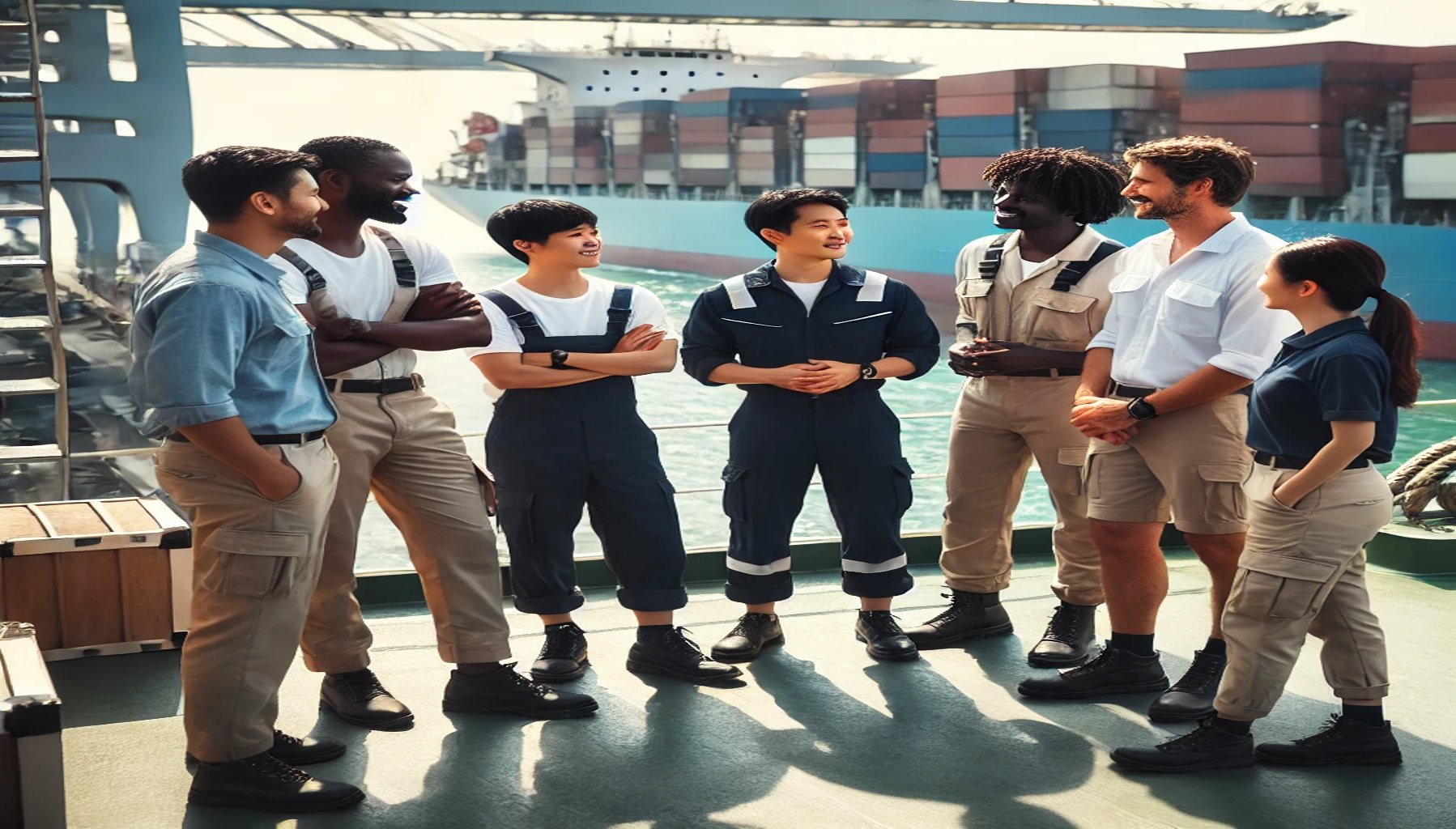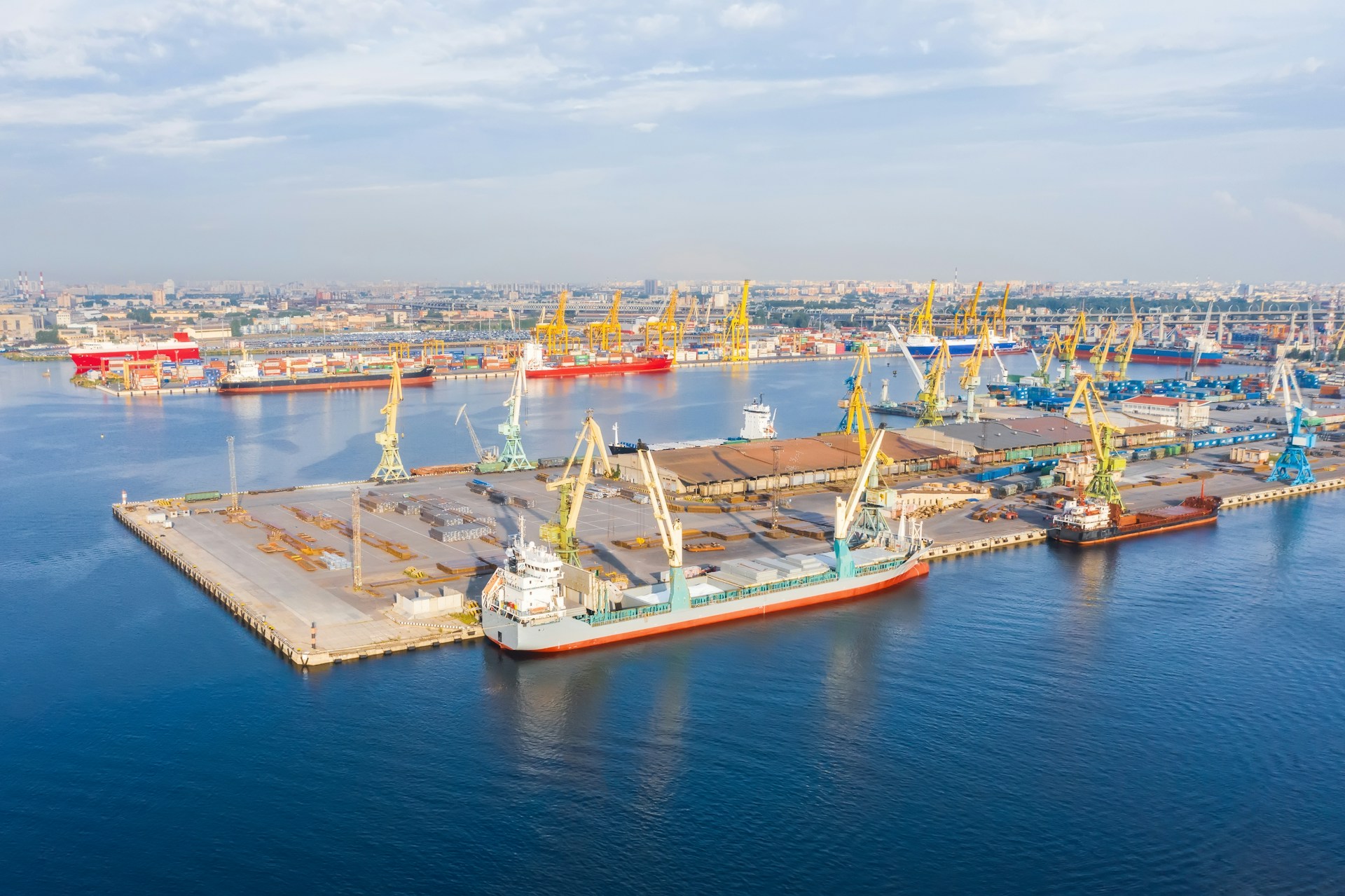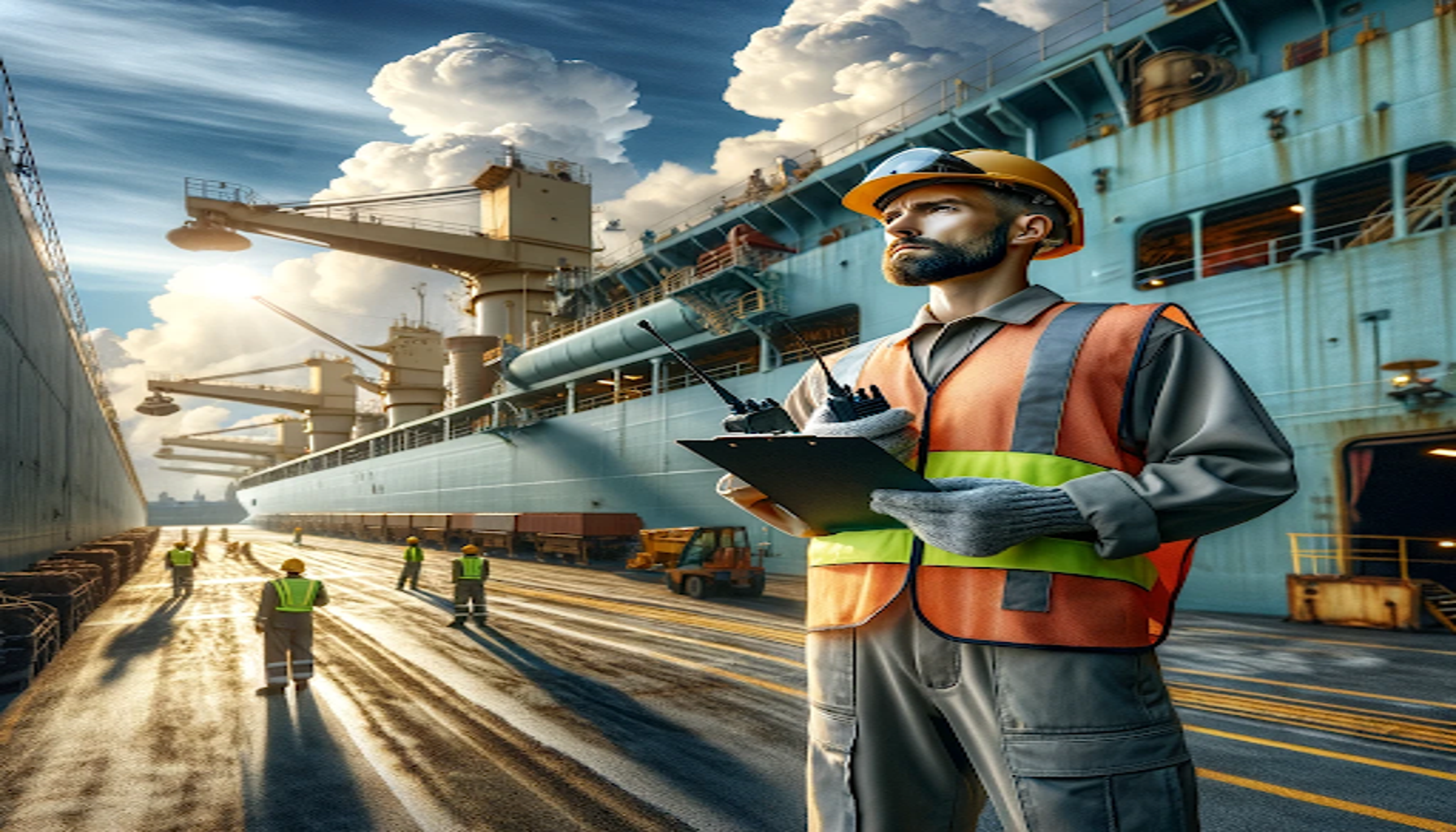Without a doubt there are perks of being a seafarer, working in a maritime job and living life on a container ship that most people working on shore could only dream of. One of those perks that’s at the top of the list is the opportunity to visit new countries whilst in port.
But how should you make the most of that precious, and often all too short, time on land?
What is shore leave for merchant mariners?
First of all, what actually is shore leave? Shore leave for merchant mariners refers to the time anyone working in a maritime job at sea is permitted to spend ashore when their vessel is docked at a port.
This period allows seafarers to leave the ship temporarily to rest, recuperate, and engage in personal activities away from the workplace. Shore leave is an essential aspect of seafaring life, offering a much-needed break from the isolation and demanding nature of working at sea.
During shore leave, mariners often explore local areas, run personal errands, access healthcare, or connect with family and friends through communication centers. Shore leave also provides an opportunity to visit seafarer welfare centers, which offer resources like recreational activities, internet access, and pastoral care, such as that offered by the Mission to Seafarers.
While shore leave is a critical component of maintaining mental health and morale for seafarers, its availability can be limited by factors such as tight shipping schedules, security protocols, and visa requirements.

Which brings us neatly on to…
How does shore leave differ today from the past?
One thing we do have to point out is that shore leave for seafarers in the merchant marines / merchant navy today is vastly different from what it was in the past. Historically, shore leave provided extended opportunities for rest, relaxation, and exploration in port cities, often lasting several days.
Seafarers could immerse themselves in local cultures, visit family, or famously, spend time drinking in bars and getting to know the locals!
In contrast, modern shore leave is increasingly constrained by shorter port stays due to the rapid turnaround times of cargo operations, stricter security protocols under the International Ship and Port Facility Security (ISPS) Code, and challenges posed by visa restrictions in certain countries.
Additionally, during the COVID-19 pandemic, shore leave was often suspended entirely due to quarantine requirements and health risks, leaving many seafarers confined to their vessels for months.
While technology now enables seafarers to stay connected with loved ones while onboard, the diminishing availability of meaningful shore leave has raised concerns about the mental health and morale of modern merchant mariners.
Having said that, if you are lucky enough to get a period of shore leave and you have the time to venture beyond your port of call, here are a few tips to help you make the most of your free time.
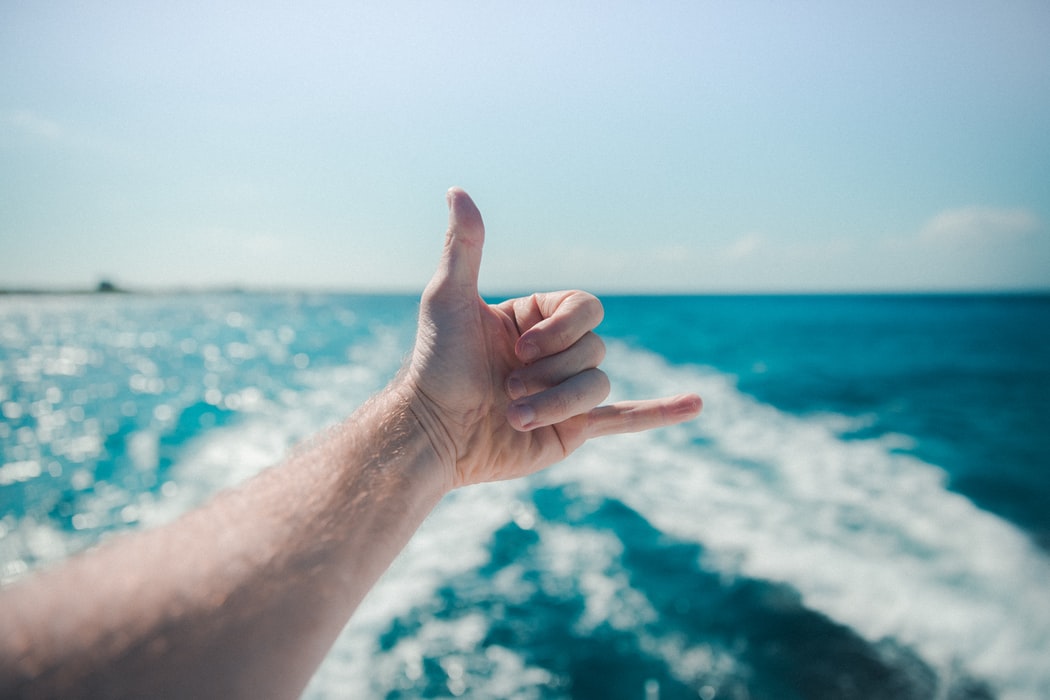
Tips for getting the most out of your time ashore
We know that not all of these suggestions may be relevant to you, especially if your vessel has a quick turnaround and you only have time to stock up on snacks and make a quick phone call to your loved ones while in port, but they may come in useful!
Ask fellow crew members for advice
Life on a container ship often means that you’re crewing alongside someone that has a lot more experience than you, both in terms of career and in shore leave experience. Ask around or speak to likely looking co-workers and see if they have any top travel tips on where to go (and where to avoid!) when you arrive in port.
Get information on the ground
It might be that you don’t have internet connectivity on board your vessel, in which case you might need to decide what to do and where to go once you’re on land. Try asking the ship’s local agents, or even striking up a conversation with a friendly local.
After all, they’ll be the ones with the insider knowledge and should hopefully be able to point you in the right direction when it comes to seeing the sights and finding somewhere to sample the local food and drink.
Don’t leave anything to chance
You know that as a seafarer schedules, deadlines, sticking to rotas is crucial and it can be tempting to let that all slide when you hit shore. Keep within your schedule in accordance with your crewing duties while in port.
You’re going to need to keep track of the time/date and not leave your fellow crew members hanging - either by showing up too hungover to work, or not showing up at all.
Read more: 8 Things You Should Never Do in Jobs at Sea
Plan your shore leave and make sure you’re back in time, ready to start work and get back to life on a container ship with a clear head!

Paperwork, paperwork, paperwork
Running into trouble with the authorities is no one’s idea of fun or a good use of limited shore leave time, so if you do fall foul of those in charge in your destination port, at least make the process as pain free as possible.
That means carrying identification such as your seamen book and/or shore leave pass, or at least copies of them.
Keeping contact names and numbers on a piece of paper as well as in your phone is also a good idea. Especially if you’re in a country where the language is completely different to your own.
Read more: Jobs at Sea & Dealing with Lost Luggage & Documents
Write down info such as your vessel’s INMARSAT number, a contact for the ships’ agent, and the terminal gate-keeper’s number for extra peace of mind.
Downloading a language translation app could also come in useful in the event of a lost in translation situation where connectivity is possible or before you embark initially.
Are there laws governing shore leave for seafarers?
Yes, there are laws and international conventions that govern shore leave for seafarers to ensure their rights and well-being are protected.
Keep in mind that the following information is believed to be correct at the time of writing and should not be used as a definitive guide. However, as of now, key regulations include:
Maritime Labour Convention (MLC), 2006
The MLC 2006, often referred to as the "Seafarers' Bill of Rights," is an international treaty established by the International Labour Organization (ILO). It provides comprehensive rights for seafarers, including the right to shore leave. Under the MLC:
- Shore leave provisions: Flag states and port states must facilitate shore leave to benefit the health and well-being of seafarers. This includes minimizing barriers to their disembarkation.
- Access to welfare facilities: Ports are required to provide or ensure access to welfare facilities for seafarers, such as recreation centers, communication services, and transportation to and from ports.
International Ship and Port Facility Security (ISPS) Code
While the ISPS Code primarily focuses on enhancing security at ports and aboard ships, it also impacts shore leave. Port facilities must balance security requirements with ensuring that seafarers can disembark for shore leave. However, stricter security measures have sometimes made it more difficult for seafarers to access shore leave.
National laws
Each country may have its own set of laws and regulations that govern the granting of shore leave. For example:
- Some countries require seafarers to obtain a shore pass or visa, which can sometimes be an obstacle depending on the nation's immigration policies.
- Others have streamlined procedures to facilitate seafarer disembarkation for shore leave or emergencies.
United Nations Convention on the Law of the Sea (UNCLOS)
UNCLOS obliges member states to cooperate in ensuring that ships and their crews can access port facilities. This includes recognizing the importance of shore leave for the mental and physical health of seafarers.
Challenges regarding shore leave despite these laws
Although these laws exist, practical challenges often hinder shore leave, such as:
- Short port stays: Rapid cargo operations may leave insufficient time for mariners to disembark.
- Visa and immigration restrictions: Seafarers sometimes face delays or refusals when applying for necessary permits to go ashore.
- Pandemic and health measures: COVID-19 and similar health crises have further limited shore leave through quarantine requirements and restrictions.
- Transportation from ports: Ports are often located in fairly remote locations and away from amenities and city centers and often transportation is either scarce, or prohibitedly expensive.
Suffice to say, while laws do exist to safeguard shore leave rights, enforcement and real-world application vary widely, often leaving seafarers dependent on the practices of individual ports and shipping companies.
Having said that, if you do get to experience a period of shore leave, however long or short, make the most of your time on land and take advantage of the unique opportunity that jobs at sea have given you: the chance to explore other countries and experience other cultures.

After all, you don’t get that from a 9 to 5 desk job do you?!
Find your next maritime job with Martide
Apply for your next job at sea with Martide now by registering your account. It's quick, easy and free - and once done means that all of our vacancies are open to you to apply for!
And if you’re a seaman actively looking for seafarer jobs in shipping, take a look at the positions Martide has to offer - you might just find your next great move!
Don't forget you can also download our mobile app for free too - that means you can apply for jobs wherever in the world you are. Get our seafarer job app now from Google Play for Android or the App Store for Apple.
This blog post was originally published on May 19th 2019 and updated on November 28th 2024.

Eve Church
Eve is Martide's content writer, publishing regular posts on everything from our maritime recruitment and crew planning software to life at sea. Eve has been writing professionally for more than two decades, crafting everything from SEO-focused blog posts and website landing pages to magazine articles and corporate whitepapers.
UK
